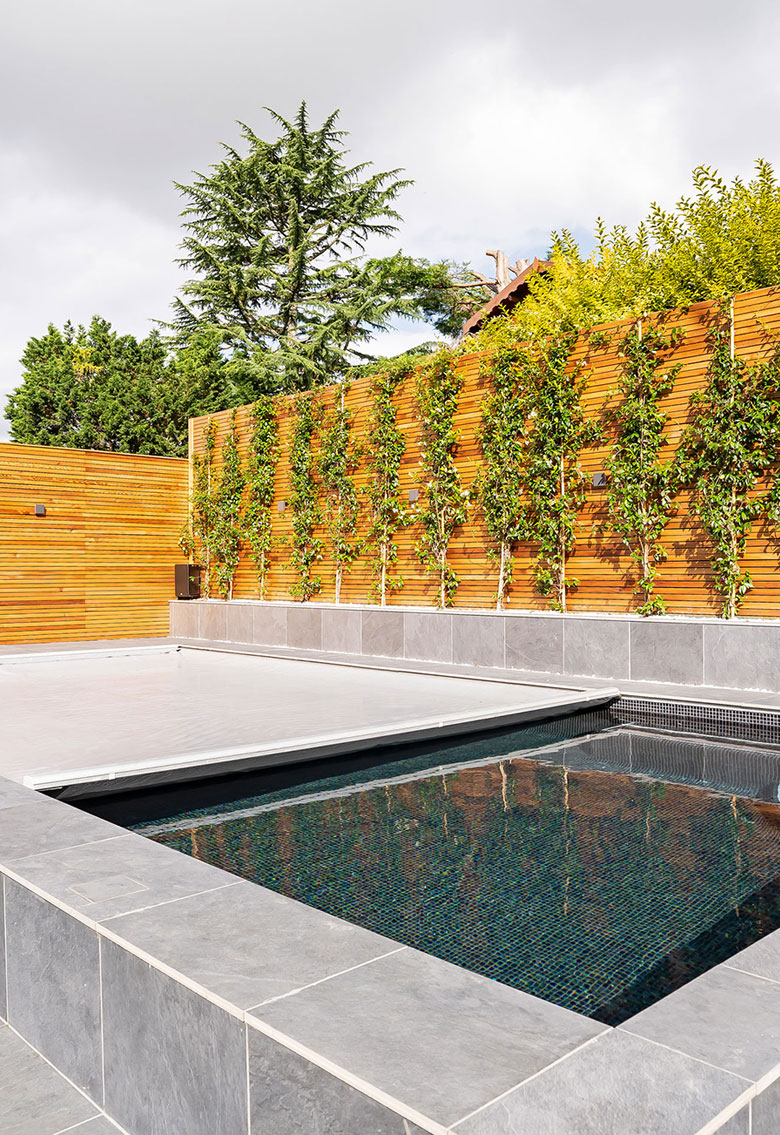
Preventing Injuries and Accidents in the Pool
A swimming pool is a place for relaxation, enjoyment and making memories.
Yet, to truly embrace the joy a pool brings, swimming pool safety must be the foundation of its design and use. Without the proper measures, accidents can happen. This guide sets out the essential precautions for each type of pool. While the emphasis is on preventing injuries before they occur, our tips are designed to show you how to create a welcoming and secure environment for all.
Why swimming pool safety matters
Pools are a wonderful source of enjoyment and health benefits, yet they carry inherent risks such as slips, falls and, most seriously, drowning. The majority of these incidents are entirely preventable with proactive safety measures. At Lagoon Pools, we put safety on a par with beautiful design to ensure our clients achieve both maximum enjoyment and complete peace of mind.
General pool safety essentials
Every pool owner should have certain universal safety measures in place to create a secure environment, forming the foundation of a space that is both safe and enjoyable. The poolside area should remain clear and uncluttered, free from furniture, toys, or other items that could create tripping hazards. Surrounds should be finished with non-slip surfaces, such as textured paving or treated timber, to provide a reliable grip even when wet. Depth markings at both the shallow and deep ends are essential for clear visibility, helping swimmers of all ages stay aware of the water’s depth. Finally, regular maintenance checks are crucial, ensuring that pumps, filters, ladders, and lighting are all functioning correctly, not only supporting safety but also keeping the pool operating smoothly year-round.
Water safety for kids
For families, creating a safe environment for children is the top priority. The principles of water safety for kids are straightforward but non-negotiable. Constant and vigilant adult supervision is the most critical rule. This should be combined with early swimming lessons to build water confidence and clear pool rules, such as no running on the deck or diving in shallow areas. Physical barriers, like child-proof gates and alarms on doors leading to the pool, are also essential to prevent unsupervised access.
Installing a pool safety fence
A dedicated pool safety fence is one of the most important layers of protection, especially in homes with young children or pets. To be effective and follow current UK best practice, a fence should be of an appropriate height (typically at least 1.2 metres), with a self-closing and self-latching gate that opens outwards from the pool. These vital safety solutions can be seamlessly integrated into your landscape design, using materials that complement your property’s overall aesthetic.
Preventing accidents in and around the pool
Beyond supervision and barriers, thoughtful design can significantly reduce the risk of injury. Key measures include:
- Using secure handrails at entry points like steps and ladders.
- Ensuring good, glare-free lighting for night-time use.
It’s also vital to keep essential safety equipment, such as life rings and reaching poles, easily accessible and in good working order, so quick action is possible if ever needed.
Year-round pool safety and preparedness
Pool safety is an ongoing, year-round commitment. This includes seasonal maintenance of filtration systems, regular checks of the chemical balance to ensure water hygiene and using a quality pool cover when it’s not in use for extended periods. For families, we strongly recommend that parents undertake CPR training to be prepared for any emergency. For commercial or shared pools, visible signage displaying pool rules and an accessible, well-stocked first aid kit are essential.
Prioritising pool safety with Lagoon Pools
A safe pool is the foundation for lasting enjoyment, whether it’s for family fun, personal relaxation or entertaining guests. At Lagoon Pools, we are committed to guiding our clients through every aspect of safety, from the initial design conversations to advice on ongoing maintenance, so you can swim with confidence all year round.
To discuss tailored advice on keeping your pool both beautiful and safe in every season, please get in touch with our team.
Frequently asked questions
How can one avoid injuries during swimming?
To avoid personal injury, always swim within your limits, avoid swimming alone and never swim under the influence of alcohol. It’s also important to stay hydrated and get out of the pool if you feel tired or unwell.
What are the safety tips for swimming pools?
The top safety tips include ensuring constant adult supervision for children, installing a four-sided isolation fence with a self-latching gate, keeping the pool deck clear of hazards, establishing clear safety rules (like no running) and having safety equipment readily available.
What are the safety things for a pool?
Essential safety items for a residential pool include a compliant safety fence and gate, a life ring or other flotation device, a reaching pole, a well-stocked first aid kit and a quality pool cover.
How to avoid injuries and accidents?
The best way to avoid accidents is to use a layered approach. Combine physical barriers (fences, gates, covers) with diligent supervision, clear rules for behaviour in and around the pool, and ensure that the pool environment itself is well-maintained with non-slip surfaces and clear pathways.



